The Chicago Bulls are a professional basketball team established in 1966 and based in Chicago, Illinois. They compete in the NBA as part of the Eastern Conference's Central Division. The Bulls started playing during the 1966-67 NBA season. Their home games are held at the United Center, which they share with the Chicago Blackhawks of the NHL. Previously, both teams played at Chicago Stadium.
1946: Chicago Stags Existence
In 1946, the Chicago Stags existed as a basketball team in Chicago's history.
1961: Chicago Packers/Zephyrs Existence
In 1961, the Chicago Packers/Zephyrs existed as a basketball team in Chicago's history.
January 16, 1966: Team Founding
On January 16, 1966, the Chicago Bulls were founded as an American professional basketball team based in Chicago, becoming the third NBA team in the city's history.
1966: Expansion Draft and Team Formation
In 1966, after the NBA expansion draft, the Chicago Bulls acquired players and formed their team under coach Johnny "Red" Kerr.
1966: Chicago Bulls Logo Adopted
In 1966, the Chicago Bulls adopted their iconic logo: a red, charging bull's face. The logo was designed by Dean P. Wessel.
1967: Attendance Decline
During the 1967-68 season, the Bulls experienced a decline in fan attendance, with some games having very low turnout.
1969: Red Uniforms Tweaked to Include City Name
For the 1969–70 season, the Chicago Bulls' red uniforms were tweaked to include the city name.
1969: Introduction of Benny the Bull
In 1969, Benny the Bull was introduced as the main mascot of the Chicago Bulls. Benny is a red bull who wears number 1 and is one of the oldest and best-known mascots in professional sports.
1969: Pat Williams Hired
In 1969, Dick Klein resigned as general manager and hired Pat Williams, who revitalized the Chicago Bulls franchise and introduced Benny the Bull.
1970: Teams First Game
The teams have played each other since the Cavaliers joined the NBA as an expansion team in 1970.
1972: Franchise Record Wins
In 1972, under Williams and Motta, the Chicago Bulls set a franchise record with 57 wins.
1973: Bulls Drastically Change Uniform Look
For the 1973–74 season, the Chicago Bulls drastically changed their uniform look, removing the side stripes and drop shadows while moving the front numbers to the left chest.
1975: Conference Finals Appearance
In 1975, the Chicago Bulls made their first appearance in the conference finals, but lost to the Golden State Warriors.
1976: Artis Gilmore Acquisition
In 1976, Artis Gilmore was acquired by the Chicago Bulls in the ABA dispersal draft.
1979: NBA Draft Coin Flip Loss
In 1979, the Chicago Bulls lost a coin flip for the first pick in the NBA draft and selected David Greenwood instead of Magic Johnson, who was selected by the Los Angeles Lakers.
1982: Jordan's Deciding Jumper in NCAA Championship Game
In 1982, Michael Jordan hit the deciding jumper of the final in the NCAA Men's Division I Basketball Championship Game. This game marks the beginnning of the rivalry between Michael Jordan and Patrick Ewing.
1984: Michael Jordan Drafted
In 1984, the Chicago Bulls selected Michael Jordan with the third pick of the NBA draft and began rebuilding the team around him.
1984: Drafting Michael Jordan
The rivalry didn't begin in earnest until the Bulls drafted Michael Jordan with the third overall pick in 1984.
1985: Jordan's Return and Playoff Record
In 1985, after recovering from a broken foot, Michael Jordan led the Chicago Bulls in the playoffs and scored a playoff single-game record of 63 points against the Boston Celtics.
1985: Celtics home record in 1985-86
In 1985-86, the Boston Celtics posted a 40-1 home record, the best in NBA history, ahead of the Bulls' 39-2 record in 1995-96.
1985: Bulls Update Uniforms
Starting with the 1985–86 season, the Chicago Bulls updated their uniform with centered uniform numbers and a vertically arched "Bulls" wordmark in both the red and white uniforms.
1985: Bulls Uniforms Used Until 1985
With a few tweaks in the lettering, the Chicago Bulls' uniforms introduced in 1973 were used until 1985.
1986: Jordan Leads in Scoring
In the 1986-87 season, Michael Jordan led the league in scoring with 37.1 points per game and was named to the All-NBA First Team, marking the first Bull to receive this honor.
1987: Oakley Led League in Rebounds
In 1987, Charles Oakley led the league in total rebounds.
1987: Draft Acquisitions: Pippen and Grant
In the 1987 NBA draft, the Chicago Bulls selected Olden Polynice and Horace Grant, then traded Polynice for Scottie Pippen to address their lack of depth.
1988: Jordan Named MVP
In 1988, Michael Jordan was named NBA Most Valuable Player, marking the beginning of the Pistons-Bulls rivalry.
1988: Oakley Traded for Cartwright
In 1988, the Chicago Bulls traded Charles Oakley to the New York Knicks for Bill Cartwright and a first-round pick.
1989: Coaching Change and Draft Picks
In 1989, Doug Collins was replaced by Phil Jackson as head coach of the Chicago Bulls, and the team drafted Stacey King and B. J. Armstrong.
1989: Bulls Debut Black Shoes Tradition in Playoffs
In 1989, the Chicago Bulls debuted the tradition of wearing black shoes during the playoffs. Backup center Brad Sellers suggested wearing black shoes as a way to show team unity.
1989: Bulls Defeat Knicks in Eastern Semifinals
In 1989, the Chicago Bulls defeated the New York Knicks in six games of the Eastern Semifinals. Both teams, led by Michael Jordan and Patrick Ewing, were considered "teams on the rise."
1989: Bulls Begin Black Shoes Playoff Tradition
Since 1989, the Chicago Bulls generally wore black footwear in the playoffs.
1990: Ray Clay Replaces Tommy Edwards as Announcer
In 1990, Ray Clay replaced Tommy Edwards as the announcer for the Chicago Bulls. Clay continued many of the traditional aspects of the Bulls introductions, including the use of "Sirius" by The Alan Parsons Project.
1990: Franchise Record 61 Wins
In the 1990-91 season, the Chicago Bulls recorded a then-franchise record of 61 wins and advanced to the NBA Finals, where they defeated the Los Angeles Lakers.
1991: Bulls Sweep Pistons in Eastern Conference Finals
In 1991, the Chicago Bulls swept the Detroit Pistons in four games in the Eastern Conference Finals, ending the Pistons' dominance. The Pistons walked off the floor before the game clock expired.
1991: Bulls win against Knicks in the playoffs
In 1991, the Chicago Bulls won against the New York Knicks in the playoffs, marking the first of three consecutive years of playoff victories against them.
1991: NBA Championship Win
In 1991, the Chicago Bulls, led by Michael Jordan, Scottie Pippen, and coach Phil Jackson, won one of their six NBA championships, marking the beginning of their dynasty.
1991: Pistons-Bulls Rivalry Ends
The Pistons-Bulls rivalry ended in 1991, during which the Chicago Bulls dominated.
1992: Bulls vs. Knicks Playoff Series Goes to Seven Games
In 1992, the Chicago Bulls and New York Knicks playoff series went to the full seven games.
1992: Second Consecutive Title
In 1992, the Chicago Bulls won their second straight NBA title after achieving another franchise record for wins with 67, defeating the Portland Trail Blazers in the Finals.
October 6, 1993: Michael Jordan's First Retirement
On October 6, 1993, Michael Jordan announced his retirement from basketball, three months after his father's murder.
1993: Steve Kerr acquired by the Bulls
Before the 1993-94 season, the Bulls acquired Steve Kerr via free agency.
1993: Bulls Win Third Consecutive Year Against Knicks in Playoffs
In 1993, the Chicago Bulls won against the New York Knicks for the third consecutive year in the playoffs.
1993: Third Consecutive Championship
In 1993, the Chicago Bulls won their third consecutive championship, defeating the Phoenix Suns in the Finals, with a decisive three-pointer by John Paxson in Game 6.
1994: Pippen Leads the Bulls
In 1994, Scottie Pippen led the Chicago Bulls, winning the All-Star MVP, with support from Horace Grant and B. J. Armstrong.
1994: Bulls Roster Changes
In 1994, the Chicago Bulls lost key players like Grant, Cartwright, and Williams, while acquiring Ron Harper, Jud Buechler, and Luc Longley.
1994: Knicks defeat Bulls in the playoffs
In 1994, the New York Knicks defeated the Chicago Bulls in the playoffs, ending the Bulls' winning streak against them in the playoffs.
1994: NBA draft modified
In 2008, the Bulls became the team with the lowest chance of winning to ever win the lottery since it was modified for the 1994 NBA draft.
March 18, 1995: Michael Jordan Returns to the Bulls
On March 18, 1995, Michael Jordan announced his return to the Chicago Bulls after his retirement.
1995: Michael Jordan Debuts Air Jordan XI in White Colorway
During the 1995 playoffs against the Orlando Magic, Michael Jordan debuted his Air Jordan XI shoe. He wore the white colorway during the Bulls' playoff games in Orlando and was fined by the Bulls for not complying with their colorway policy.
1995: 72-Game Win Season
During the 1995-96 season, the Chicago Bulls achieved a record of 72 wins, setting an NBA record that stood until 2015.
1995: Bulls start the season with a win over the Hornets
In 1995, the Chicago Bulls began their 1995-96 campaign with a 105-91 victory over the Charlotte Hornets, featuring a 42-point performance from Michael Jordan.
1995: Introduction of Da Bull
In 1995, the Chicago Bulls introduced Da Bull, described as Benny the Bull's high-flying cousin. Da Bull was known for his dunking skills, had a more realistic and meaner bull design, was brown, and wore number 95.
1995: Bulls set records in 1995-96
In 1995-96, the Chicago Bulls achieved the best road record and the all-time best start by a team.
1995: Bulls Add Black Uniform
In the 1995–96 season, the Chicago Bulls added a black uniform to their set. The initial look featured red pinstripes and lacked the classic diamond on the shorts.
1996: Bulls Get Revenge Against Knicks in the Playoffs
In 1996, the Chicago Bulls got revenge against the New York Knicks in the playoffs after losing to them in 1994.
1997: Bulls Wear Slightly Modified Black Uniforms
From the 1997–98 season, the Chicago Bulls wore slightly modified black uniforms without pinstripes.
1997: Jordan Named League MVP
In 1997-98, Michael Jordan was named the league MVP for the fifth and final time.
1997: Focus on 1997-98 Championship Season in 'The Last Dance'
The 2020 documentary miniseries "The Last Dance" focused particularly on the Chicago Bulls' 1997–98 championship season, chronicling Michael Jordan's career with the Bulls.
1998: Bulls Reach Eastern Conference Finals
In 1998, the Bulls reached the Eastern Conference finals for the first time since 1998, ultimately losing to the Miami Heat.
1998: Sixth NBA Championship Win
In 1998, the Chicago Bulls won their sixth NBA championship, marking the end of their dominant run in the 1990s.
1998: Bulls make playoff appearance since 1998
In 2004, The Chicago Bulls made their first playoff appearance since 1998.
1998: First series victory since 1998
In 2006, the Chicago Bulls swept the defending champion Miami Heat, marking their first series victory since 1998.
1998: End of the Bulls' Championship Era
In the summer of 1998, the Chicago Bulls' championship era ended with key players being traded or leaving, and Michael Jordan announcing his second retirement.
1998: Post-Championship Struggles
Since 1998, the Chicago Bulls have struggled to regain their former success, facing challenges and rebuilding phases.
January 13, 1999: Michael Jordan's Second Retirement
On January 13, 1999, Michael Jordan retired for the second time.
1999: City Name Returns to Front of Uniform
During the 1999–2000 season, the city name returned to the front of the Chicago Bulls' black uniform.
1999: Bulls Draft Elton Brand
In 1999, the Chicago Bulls won the draft lottery and drafted Elton Brand.
2000: City Name Returns to Front of Uniform
During the 1999–2000 season, the city name returned to the front of the Chicago Bulls' black uniform.
2000: Bulls floundering at 17-65
In 1999-2000, despite Elton Brand's stellar rookie season, injuries and trades left the Chicago Bulls floundering at 17-65.
2002: Addition of Jay Williams to the Bulls
In 2002-03, the addition of Jay Williams brought optimism to the Chicago Bulls.
2003: Uniform Set Revived as Throwback
During the 2003–04 season, the Chicago Bulls uniform set from 1973-1985 was revived as a throwback uniform.
2003: Krause retires, Paxson becomes GM
In 2003, Jerry Krause retired, and John Paxson became the General Manager of the Chicago Bulls.
2003: The Selecting of Lebron James
When Cleveland picked LeBron James with the first selection in 2003, the rivalry heated up again.
2004: Bulls Continue Black Shoes Tradition in First Playoff Appearance After Hiatus
During the 2004–05 season, the Chicago Bulls made their first playoff appearance after a six-year hiatus and continued the tradition of wearing black shoes.
2004: Da Bull's retirement
In 2004, the man who portrayed Da Bull was arrested for possession and selling marijuana from his car. Soon after the incident, Da Bull was retired as a mascot.
2005: Curry traded to the Knicks
During the 2005 offseason, Eddy Curry was traded to the New York Knicks due to concerns about his heart condition.
2005: Bulls Wear Slightly Modified Black Uniforms
Until the 2005–06 season, the Chicago Bulls wore slightly modified black uniforms without pinstripes.
2006: Tommy Edwards Returns as Announcer
In 2006, the Chicago Bulls announced the return of Tommy Edwards as their announcer after internal disputes led to the dismissal of Ray Clay.
2006: Bulls Trade for Tyrus Thomas and Thabo Sefolosha
In the 2006 NBA Draft, the Chicago Bulls traded for Tyrus Thomas and Thabo Sefolosha and signed veteran Ben Wallace.
2006: Bulls Change Black Alternate Uniform
The 2006–07 season saw another change in the Chicago Bulls' black alternate uniform, now resembling the red and white uniform with the addition of a red diamond in the shorts.
2007: Pistons vs Bulls in Eastern Conference Semifinals
In 2007, the rivalry between the Chicago Bulls and the Detroit Pistons was renewed in the Eastern Conference Semifinals, with the Pistons winning in six games. Ben Wallace, formerly a cornerstone of the Pistons, played against his old team.
June 26, 2008: Bulls Draft Derrick Rose
On June 26, 2008, the Chicago Bulls drafted Chicago native Derrick Rose as the number 1 draft pick.
2008: Bulls strive to rebuild as a competitive team
Between 2004 and 2008, the Chicago Bulls underwent roster transformations to rebuild as a competitive team.
2008: Drafting Derrick Rose
The Cavaliers had an edge over the Bulls, who would pick Derrick Rose with the first selection in 2008 to turn Chicago from a lottery team to a future contender.
February 2009: Bulls make Trades to strengthen Roster
In February 2009, the Chicago Bulls made multiple trades to strengthen their roster.
2009: Bulls Wear White Shoes and Socks in Game 3 Against Celtics
During the 2009 playoffs, the Chicago Bulls broke the tradition when all of their players wore white shoes and socks in Game 3 of the first round against the Boston Celtics.
2009: Bulls traded Weems to the Denver Nuggets
In 2008, The Bulls later traded Sonny Weems to the Denver Nuggets for Denver's 2009 regular second-round draft pick.
2009: Bulls Select Johnson and Gibson in NBA Draft
In the 2009 NBA Draft, the Chicago Bulls selected James Johnson and Taj Gibson and lost Ben Gordon to the Detroit Pistons.
2009: Spanish Language Game Coverage on WRTO
Since 2009, Univision Radio's WRTO (1200) has carried Spanish language game coverage for the Chicago Bulls, with Omar Ramos as play-by-play announcer and Matt Moreno as color analyst.
May 2010: Bulls Fire Head Coach Vinny Del Negro
In May 2010, the Chicago Bulls fired head coach Vinny Del Negro.
June 2010: Tom Thibodeau Hired as Head Coach
In early June 2010, Tom Thibodeau accepted a three-year contract to become the Bulls' head coach.
2010: Early 2010s Promise
In the early 2010s, specifically around 2010-11, the Chicago Bulls showed promise with players like Derrick Rose and Joakim Noah.
2011: Derrick Rose Wins NBA MVP
In 2011, Derrick Rose won the NBA MVP Award, becoming the youngest player in NBA history to win it and the first Bulls player since Michael Jordan to receive the award.
2011: Acquisition of Mirotic
In 2011, the Bulls traded for the draft rights to Nikola Mirotic.
2011: Heat defeat Bulls in Eastern Conference Finals
In 2011, the Miami Heat defeated the Chicago Bulls in 5 games in the Eastern Conference Finals.
2011: Continued Success in 2011
In the 2011-12 season, the Chicago Bulls continued their success from the previous year, maintaining a high winning percentage.
June 13, 2012: Announcement of Practice Facility Move
On June 13, 2012, the Chicago Bulls announced that they would move their practice facility to a downtown location closer to the United Center to reduce game day commutes.
2012: Black Uniform Revived as Throwback
The Chicago Bulls' black uniform from the 1995-96 season was revived as a throwback uniform in the 2012–13 season.
March 27, 2013: Bulls Snap Heat's Winning Streak
On March 27, 2013, the Chicago Bulls snapped the Miami Heat's 27-game winning streak.
2013: Rose Injured, Noah Shines
In 2013, Derrick Rose sustained another significant injury, while Joakim Noah earned Defensive Player of the Year honors.
2013: Detroit Red Wings Move to Atlantic Division
In 2013, the Detroit Red Wings moved to the Atlantic Division of the Eastern Conference, ending the shared divisions between Chicago and Detroit in all four major North American sports.
September 12, 2014: Opening of the Advocate Center
On September 12, 2014, the Chicago Bulls officially opened their new training facility, the Advocate Center, a block east of the United Center. The Advocate Center is named after the Advocate Medical Group.
2014: Roster Changes and Challenges
Between 2011 and 2014, the Chicago Bulls faced roster changes and injuries, but remained competitive.
2014: Bulls Make Offseason Moves
During the 2014 offseason, the Bulls traded for Doug McDermott, added Cameron Bairstow, signed Pau Gasol, brought over Nikola Mirotić, and re-signed Kirk Hinrich.
2014: Bulls Tweak Black Alternate Uniform
For the 2014–15 season, the Chicago Bulls' black alternate uniforms were tweaked a bit to include sleeves and a modernized diamond treatment in black with red and white borders.
2014: Optimism with Rose and Gasol
The 2014 season brought renewed optimism with the return of Derrick Rose and the addition of Pau Gasol.
2014: Acquire Michael Carter-Williams
The Bulls acquired the 2014 Rookie of the Year, Michael Carter-Williams, in a trade with the Milwaukee Bucks
May 28, 2015: Bulls Fire Thibodeau
On May 28, 2015, the Bulls fired Tom Thibodeau to seek a "change in approach".
October 2015: Bulls games carried on WLS
In October 2015, the Chicago Bulls games were carried on Cumulus Media's WLS (890).
2015: Uniform Set Revived as Throwback
During the 2015–16 season, the Chicago Bulls uniform set from 1973-1985 was revived as a throwback uniform.
2015: Bulls Miss Playoffs
In 2015, the Bulls missed the playoffs for the first time in eight years after struggling through the season.
2015: Golden State Warriors Break Record
In the 2015-16 season, the Golden State Warriors surpassed the Chicago Bulls' 1995-96 record by winning 73 games.
June 22, 2016: Rose Traded to Knicks
On June 22, 2016, the Bulls traded Derrick Rose, Justin Holiday, and a 2017 second-round pick to the New York Knicks.
2016: Rocky Wirtz Lets Ringling Bros. and Barnum & Bailey Circus Contract Lapse
In 2016, Chicago Blackhawks chairman Rocky Wirtz, who co-owns the United Center with Bulls chairman Jerry Reinsdorf, let the contract with Feld Entertainment's Ringling Bros. and Barnum & Bailey Circus lapse after the circus' run that year.
June 2017: Butler Traded to Timberwolves
In June 2017, the Chicago Bulls traded Jimmy Butler and their 2017 first-round pick to the Minnesota Timberwolves.
October 17, 2017: Portis and Mirotić Fight at Practice
On October 17, 2017, Bobby Portis punched Nikola Mirotić during practice, resulting in injuries and a suspension.
2017: Nike Introduces Bulls' 'City' Uniforms
In 2017, Nike introduced the Chicago Bulls' "City" uniforms, paying homage to Chicago’s flag, architecture, and cultural symbols. These uniforms have evolved each season.
2017: Ringling Bros. and Barnum & Bailey Circus Discontinued
In 2017, the Ringling Bros. and Barnum & Bailey Circus was discontinued.
2017: Nullification of WLS Deal
In 2017, the deal between the Chicago Bulls and Cumulus Media's WLS (890) was nullified after Cumulus filed for Chapter 11 bankruptcy.
2017: Nike Becomes NBA's Uniform Provider
In 2017, when Nike became the NBA's uniform provider, the Chicago Bulls kept much of the same look save for the truncated shoulder striping and the addition of the Chicago four stars on the waistline.
2017: Nike Logo Affects Bulls' Black Uniform
Since the 2017–18 season, the Chicago Bulls' black uniforms remained mostly untouched for the switch to the new Nike logo that affected the treatment towards the shoulder piping. Nike also dubbed this uniform as the "Statement" uniform in reference to its third jerseys.
2017: Draft Pick Traded
The Bulls traded a 2017 second-round pick in the Derrick Rose trade to the Knicks.
January 2018: Nullification of WLS Deal
In January 2018, the deal between the Chicago Bulls and Cumulus Media's WLS (890) was nullified after Cumulus filed for Chapter 11 bankruptcy.
February 3, 2018: Bulls games broadcast on WSCR
As of February 3, 2018, the Chicago Bulls games are broadcast on Entercom's WSCR (670).
February 2018: Disney on Ice Condensed to One-Week Run
Effective February 2018, the formerly two-week local run of Feld Entertainment's Disney on Ice was condensed to a one-week period.
February 2018: Mirotić Traded to Pelicans
In February 2018, Nikola Mirotić was traded to the New Orleans Pelicans following the incident with Bobby Portis.
2018: Bulls Draft and Sign Players
In 2018, the Bulls drafted Wendell Carter Jr. and Chandler Hutchison, and re-signed Zach LaVine.
2018: Exclusive Deal with NBC Sports Chicago
In 2018, the Chicago Bulls agreed to an exclusive multi-year deal with NBC Sports Chicago, ending the team's broadcasts on WGN-TV following the 2018–19 season.
January 2, 2019: Exclusive Deal with NBC Sports Chicago
On January 2, 2019, the Chicago Bulls (along with the Chicago White Sox and Chicago Blackhawks) agreed to an exclusive multi-year deal with NBC Sports Chicago, ending the team's broadcasts on WGN-TV following the 2018–19 season.
February 2019: Portis and Parker Traded for Porter
In February 2019, Bobby Portis and Jabari Parker were traded for Otto Porter.
2019: Bulls Draft White and Sign Veterans
In 2019, the Bulls selected Coby White and signed veterans Tomáš Satoranský and Thaddeus Young.
2019: Pinstripes Return to Bulls' Statement Uniform
The 2019–20 season marked the return of pinstripes to the Chicago Bulls' "Statement" uniform, albeit in dark gray. In addition, the diamond treatment returned to red, piping was tweaked, and four six-point stars were featured on the beltline.
2020: Karnišovas and Donovan Join Bulls
In 2020, Artūras Karnišovas became the Bulls' executive vice president, Marc Eversley was hired as general manager, and Billy Donovan became head coach.
2020: Tim Sinclair Replaces Tommy Edwards as Announcer
In 2020, Tim Sinclair replaced Tommy Edwards as the announcer for the Chicago Bulls.
2020: Release of 'The Last Dance' Documentary
In 2020, the Chicago Bulls received significant media coverage following the release of "The Last Dance", a critically acclaimed ESPN and Netflix documentary miniseries that chronicled Michael Jordan's career with the Bulls.
2020: Bulls Miss Playoffs
The Bulls would go on to finish the 2020-21 season with a 31-41 record, missing the playoffs for the fourth consecutive year.
2020: Bulls to Wear White "Association" Uniforms in Home Games
The Chicago Bulls continued to wear red "Icon" uniforms in home games until the 2020–21 season, after which they returned to wearing the white "Association" uniforms in home games starting in the 2021–22 season.
March 2021: Vučević Traded to Bulls
In March 2021, the Bulls traded for Nikola Vučević and Al-Farouq Aminu, sending Wendell Carter Jr, Otto Porter and draft picks to Orlando.
December 2021: DeRozan's Buzzer-Beaters
In late December 2021, DeMar DeRozan made back-to-back buzzer-beaters against the Indiana Pacers and Washington Wizards.
2021: Bulls Improve Roster
In the 2021 offseason, the Chicago Bulls made moves to improve their roster, including drafting Ayo Dosunmu, trading for Lonzo Ball, and signing Alex Caruso and DeMar DeRozan.
2021: Bulls to Wear White "Association" Uniforms in Home Games
In the 2021-22 season, the Bulls returned to wearing the white "Association" uniforms in home games.
2022: LaVine Re-Signed, Terry Drafted
In the 2022 offseason, the Bulls re-signed Zach LaVine to a five-year, $215.2 million contract and selected Dalen Terry in the draft.
2023: Bulls Leave NBC Sports Chicago
At the end of the 2023–2024 season, the Chicago Bulls left NBC Sports Chicago, moving to the new Chicago Sports Network in 2024.
2023: Heat Defeat Bulls in Eastern Conference Play-In
In 2023, the Miami Heat defeated the Chicago Bulls in the Eastern Conference play-in to advance to the playoffs. The game featured former Bull, Jimmy Butler, on the Heat and former teammates DeMar DeRozan (Chicago) versus Kyle Lowry (Miami).
2023: Bulls Re-sign Players
In the 2023 offseason the Bulls re-signed Vucevic and Coby White.
January 12, 2024: Introduction of the Ring of Honor
On January 12, 2024, the Chicago Bulls introduced the Ring of Honor, which honors former players and other personnel.
2024: Television Broadcasts on Chicago Sports Network
As of the 2024–2025 season, the Chicago Bulls' television broadcasts are televised by Chicago Sports Network, which broadcasts all of the games that are not televised nationally.
2024: Bulls move to Chicago Sports Network
In 2024, the Chicago Bulls moved to the new Chicago Sports Network.
February 2, 2025: Bulls Trade Zach LaVine to the Sacramento Kings
On February 2, 2025, the Bulls traded Zach LaVine to the Sacramento Kings for Zach Collins, Tre Jones, Kevin Huerter and their own 2025 first round pick from San Antonio Spurs.
February 3, 2025: Roster update
February 3, 2025, the Bulls roster was updated.
2025: Television Broadcasts on Chicago Sports Network
As of the 2024–2025 season, the Chicago Bulls' television broadcasts are televised by Chicago Sports Network, which broadcasts all of the games that are not televised nationally.
Mentioned in this timeline

Basketball is a team sport played on a rectangular court...

Michael Jordan widely considered one of basketball's greatest players significantly...
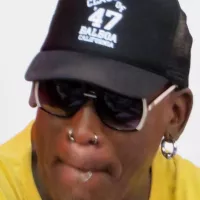
Dennis Rodman is an American former professional basketball player known...
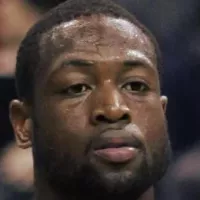
Dwyane Wade is a retired American professional basketball player considered...
The Los Angeles Lakers are a professional basketball team based...
The National Broadcasting Company NBC is a major American commercial...
Trending

44 minutes ago Isabeau Levito: Leading contender for Olympic gold in women's figure skating.

4 hours ago Berulava and Metelkina aim to shake up figure skating at 2026 Winter Olympics.
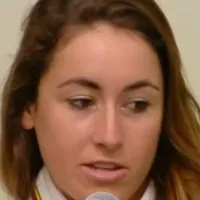
4 hours ago Brignone wins gold in Giant Slalom at Milano Cortina; Goggia silent.
4 hours ago Ski with Olympians on Dolomites cross-country trail: A rare experience before Milan Cortina Olympics.
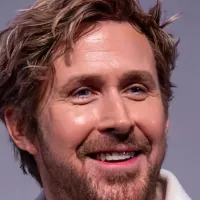
4 hours ago Eva Mendes Shares Loving Valentine's Day Tribute and Intimate Photos for Ryan Gosling
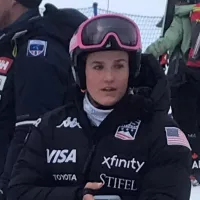
4 hours ago Paula Moltzan's Olympic Journey: From U.S. Ski Cut to Olympic Hopeful Through Vermont Skiing
Popular

Kid Rock born Robert James Ritchie is an American musician...
Randall Adam Fine is an American politician a Republican who...

Pam Bondi is an American attorney lobbyist and politician currently...

Barack Obama the th U S President - was the...
The Winter Olympic Games a major international multi-sport event held...

XXXTentacion born Jahseh Dwayne Ricardo Onfroy was a controversial yet...